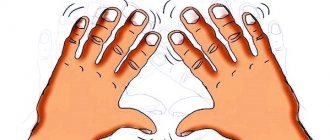Everyone has heard about such a concept as libido. But what is it, and what does libido depend on? Many people often confuse libido with potency. It’s worth saying right away that these are completely different things. Potency is the physical manifestation of a man’s readiness for sexual intercourse. Libido arises in the head at the psychological level, the brain. Simply put, it is sexual desire, arousal, passion. Unlike potency, libido is characteristic of both the male and female body. And in order to strengthen it, improve the quality of your sex life, you need to know what libido depends on.
Main Factors
What does libido depend on in girls and boys? If there is a decrease in desire on a psychological level, then the following factors may be to blame:
- The presence of stress that accumulates day after day. Yes, release in sexual games can be great. But if there is a blockage at work, and there are conflicts at home, then intimacy is unlikely to please you.
- Insomnia and increased physical stress on the body. Overwork leads to shutdown of all body systems.
- Various traumas can sometimes trigger depression. And poor health does not contribute to sexual activity. In addition, a decrease in desire can be observed due to inexperience and embarrassment. And if the partner is also much more experienced, then it is difficult for the person to open up.
Why do libido disorders develop?
There are many reasons for decreased or increased libido in men. The same man usually has several of them. Libido level depends on the following factors:
- Features of heredity. It has been established that a third of men have increased sexuality and high libido, the rest have average or low libido. Under the influence of genes, a man’s body produces a certain amount of male sex hormones and neurotransmitters - substances involved in the transmission of information in brain cells and in creating a special elevated state of love. Under their influence, various changes in libido occur.
- Changes in the level of hormone secretion against the background of various diseases. Libido can be disrupted due to endocrine diseases, for example, thyroid disease, diabetes, obesity. Pathological processes in the hypothalamus, pituitary gland, as well as inflammatory processes and tumors of the genital organs are important. In this case, neuropsychic disorders are often associated, especially if a man has expressed anxious and suspicious character traits. Thus, any sexually transmitted infection, even if it has already been cured without any consequences, can cause neurotic changes and a decrease in sexual activity.
- Age-related changes in hormonal levels. With age, less male hormones are produced and libido levels decrease. If you are overweight, it means that libido decreases even more, since adipose tissue produces female hormones estrogens.
- Constant physical or neuropsychic fatigue, prolonged stress, exhaustion. The body works hard to survive, which means there simply aren’t enough resources for sexual function.
- Neuroses and beliefs formed against the background of unsuccessful sexual experiences. Sometimes mental trauma received in youth leaves a mark for life. Confidence in one's incompetence can lead to rare sexual intercourse, stagnation in the prostate gland, chronic inflammatory processes and the development of secondary potency disorders.
- Mental illnesses. Sexual activity is especially often impaired against the background of manic-depressive psychosis in the depression stage. In schizophrenia, its decrease is also often observed.
- Wrong lifestyle. This means: irregular nutrition, consumption of high-calorie foods, sedentary lifestyle, excessive smoking, alcohol abuse. All this causes a change in libido.
- Taking certain medications. These are mainly drugs with psychoactive properties that have an inhibitory effect on the central nervous system. Some medications to lower blood pressure also have this effect.
- Boring monotonous family life. This suppresses sexual desire. According to statistics, 35% of women and 15% of men (including young couples) complain of a lack of attraction to a permanent partner, while many men are attracted to other women.
How to overcome a psychological problem?
Having figured out what libido in a man and a woman depends on, it’s worth thinking about how to correct the situation. A good way out of the situation could be an evening spent alone or in pleasant company. Perhaps having a moderate dose of alcohol will help you relax a little. A cheerful atmosphere will help you relax and loosen your tongue. And you shouldn't hide anything.
If we are talking about girls, then you can organize a trip to the spa for her and a friend. Updating the appearance of your companion will help improve the intimate side of life. In cases with men, you can allow going to a bar with friends or organizing a picnic.
Psychological breakdown can be observed at all stages of a relationship. Their quality and strength will depend on many factors. If your partner behaved unconventionally, then it is better to discuss the situation once again. After all, intimate life has the greatest impact on good family relationships.
How to increase male libido levels
Of course, there are many ways to influence the degree of sexuality in the stronger half of humanity. There are no special secrets. It is necessary to completely abandon bad habits, start eating right and playing sports. The latter is especially important, since stagnation of blood in the pelvic organs is fraught for men not only with a decrease in desire, but also with a lack of erection and the development of prostatitis.
If there are no physiological changes, then it is best to turn to the help of dietary supplements, herbal medicines, such as Golden Horse and other herbs. Also eat nuts, fish, herbs, shrimp, and fresh fruits.
If the problem is advanced, then the question may arise, which hormonal pills affect libido? Therapy of this nature can only be prescribed by a doctor.
Problems with work
If you associate a decrease in libido with problems at work or in other areas of professional activity, it is better to get a gym membership. Training provides an outlet for energy and negativity. Regular exercise will help keep your thoughts in order, and success in your work life will lead to a positive attitude at home.
Before a meeting or a difficult task, you can take a few minutes to walk outside. The brain will receive an influx of fresh air, and the body will receive a slight relaxation. Blood will fill the muscles and tissues.
Physical exercise
High libido depends on the speed of metabolic processes and biochemical reactions in the body. For a stable erection, strong muscles and active blood circulation are necessary. To improve potency, you need to regularly perform a few simple exercises. The more muscles are involved, the more intensely metabolism accelerates and testosterone is synthesized.
Useful exercises to increase potency:
- strength: squats with a barbell, pull-ups, deadlifts;
- bridge, to achieve the result you need to feel the tension in the groin area;
- walking on the buttocks;
- high step;
- for working out the groin area - “butterfly”, “frog”;
- scissors, bicycle;
- Kegel gymnastics.
You can try the static exercises that yoga offers. By stretching the muscles and keeping them tense, lymph flow and blood supply improves. A large number of yoga poses are designed to stretch the spine. It improves libido and potency by stimulating the erection and ejaculation centers in the spinal cord.
Many people take steroids to build muscle mass. This impairs testosterone synthesis. To restore its level, it is necessary to take antiestrogens, such as Clomid. It has no side effects and does not cause muscle loss.
Training the pubococcygeus (PC) muscle
The pubococcygeus muscle is located in the pelvic area. Its condition affects the quality of sex, since this muscle ensures the raising of the penis during erection. Regular training of the PC muscle allows a man to:
- Restore hormonal levels. Normal blood supply to the testicles stimulates testosterone production.
- Strengthen erection due to better filling of the cavernous bodies with blood.
- Achieve intense sensations during sexual intimacy.
- Control the duration of sexual intercourse. A trained PC muscle prevents premature ejaculation.
Kegel exercises are used to strengthen the pubococcygeus muscle. A man at any age can do it. Regular training is important; the complex takes no more than 10 minutes. The first results will be noticeable in 2–3 weeks.
Hormone levels
Desire will primarily depend on chemical arousal. This is influenced by hormonal levels. Unfortunately, not everyone knows what hormone female libido depends on and how important it is to have sufficient levels of these elements in both sexes. A lack or even a slight decrease in hormone levels can cause malfunction of the genital organs. And this, in turn, already deals a strong blow to the psychological state. To prevent this from happening, very strict measures will need to be taken. They relate to proper nutrition, sports and even attitude towards yourself. Testosterone is produced during exercise or after taking medications. Estrogen in girls is the same.
How to increase the libido of men and women in this case? There is no need to resort to drug intervention right away. But you can use simple solutions. Fruits and vegetables are a great way to start and end your day. By the way, this will help to significantly increase self-esteem, because the figure and general condition of the body will improve significantly.
Men should stop drinking beer or eating a lot of fried foods. But a little strong alcohol, especially good quality, can awaken desire. But don’t be too zealous, otherwise the desire will turn into laziness!
Foods that increase libido in men
A man's libido depends on testosterone levels. You can increase it with the help of products containing selenium, zinc, magnesium, and fatty acids. All these components are contained in products such as:
- Greens: parsley, shallots, celery, mustard, cilantro, lettuce.
- Butter, sour cream, eggs. They contain healthy cholesterol and vitamins. These substances also strengthen the walls of capillaries.
- Seafood. Sea fish, mussels, oysters, kelp are a source of vitamins, omega-3 fatty acids, and healthy protein.
- Nuts and seeds.
- Vegetables, fruits, berries.
It is necessary to reduce the consumption of fast carbohydrates: sugar, baked goods. You can eat bread made from whole grain or rye flour. Adding spices increases blood flow and can be used as an aphrodisiac. For dessert, dark chocolate with a high cocoa content is recommended.
Nutrition
We are what we eat. Oddly enough, but this saying always turns out to be true. The thing is that diet directly affects sexual activity. Moreover, improper functioning of internal organs leads to discomfort throughout the body.
A hearty dinner does not help increase libido at all. Having eaten a hearty meal, there is no point in starting intimate fun. But after all, a joint meal is quite appropriate and acceptable.
Introducing the following foods into your diet will help increase libido:
- Milk, sour cream, cottage cheese, whey. They have a positive impact on all systems as a whole. Moreover, if dairy products do not contain additives and impurities, the effect will be much higher.
- Seafood. It’s not even worth remembering that they contain many different vitamins. For example, the iodine they contain activates the burning of excess fat, which will subsequently only be a positive thing. Sea fish and crabs fill the body with hormones and minerals. And this is a direct increase in potency and general desire.
- Fruits, vegetables, herbs. There’s no point in even mentioning its usefulness. Only proper preparation deserves attention. It is enough to take into account all the tastes of your other half and you can safely go shopping. And the further outcome after a couple of glasses of wine and a light salad is not difficult to predict.
SIGMUND FREUD
<<Previous page Book table of contents Next page>A special place should be given to Sigmund Freud (1856-1939), the world-famous founder of psychoanalysis. He should undoubtedly be considered one of the founders of the study of sexuality, although the significance of his work goes far beyond the scope of this area and there was more disagreement than solidarity between him and other sexuality researchers. As a psychiatrist, Freud had a major influence on theoretical thinking in the field of sexology, starting with his Three Essays on the Theory of Sexuality in 1905.
Many of his ideas and models continue to be influential to this day. On the one hand, he, like no one else in the first third of the century, emphasized the importance of social factors of the external environment. Improper upbringing, various kinds of social conflicts, traumatic experiences in early childhood or puberty, and other fixations were named by him as the main causes of neuroses. In this direction, Freud provided invaluable guidelines for psychiatric and clinical psychological practice, and also had a fruitful impact on theoretical thinking. Freud, like other researchers of sexuality at the turn of the century, was subjected to gross insults. He was called “the lustful oaf from Butcher Lane” (that was the name of the place in Vienna where he lived from time to time).
On the other hand, however, prone to simplifying many things, Freud, based on his own clinical observations, constructed a very one-sided theoretical model that in no way stands up to scientific scrutiny. This becomes clear from a brief presentation of his theory of drives and sublimation.
As is known, in his psychoanalytic theoretical construction, Freud always assigned a dominant role to sexual attraction (libido). At the same time, he understood sexual attraction extremely broadly, considering it the energetic basis of almost all human impulses. Libido is “the most important source of energy.” If disturbances occur in its development, then neuroses arise, which are the result of a kind of “destiny of instinct.” Libidinal attraction dominates from an early age (the first forms of expression are sucking and biting) and, having passed through various intermediate stages, appears concentrated on the genitals only in puberty, prompting sexual intercourse.
According to Freud, libido functions as follows:
1. The cause of attraction is an organic source (primarily the sexual organ).
2. It manifests itself in the form of a vague striving, in “a peculiar feeling of tension of an extremely impulsive nature” (Freud, 1915, p. 71), which tends to discharge.
3. Satisfaction and relaxation of tension is achieved if an object is found - a sexual partner and a release occurs (for example, as a result of sexual intercourse). “The source of drive is the process of excitation in the corresponding organ, and the primary goal of drive is to eliminate this excitation” (1915, p. 32). In the form of a formula, this can be represented as follows: organic accumulation of desire -> tension -> sexual intercourse -> release (satisfaction).
Apparently, the model for such a performance was a steam boiler standing on a fire. Due to the constantly created steam, the pressure in the boiler increases, so that steam must be released from time to time. Although at first glance this is a completely acceptable and therefore still widespread characteristic of sexual desire, it cannot be used to explain human sexual behavior. Here Freud was too carried away by the physical model, which he simply transferred to mental processes.
For many decades, Freud's theory of sublimation also had great resonance. According to Freud, sexual energy, libido, is only partially transformed directly into sexual activity, while the other part is transformed or repressed into cultural activity, for example, work, art, religion, politics. Low bodily desire is sublimated into higher spiritual activity, which is determined by socio-cultural goals and compulsions. Society (culture) prevents a person from expressing his sexual desire in its entirety, requires him to renounce desire, as a result of which he can invest enough energy in other matters. At the same time, religious abstinence and other extreme manifestations of asceticism in art, philosophy, and politics were cited as examples.
According to this theory, great professional, social, cultural and scientific achievements should be understood primarily as products of compensatory satisfaction of libido. Libido will react and be spent in other areas of activity. Thus, sexual attraction becomes almost the creator of culture (pansexualist theory). Of course, this is not a new idea, but only a repetition of the dogmas of ancient religions, which sought through ascetic demands to accustom people to discipline to serve God.
The outlines of the theory of sublimation appeared in Freud already in 1905, but he clearly formulated it in the book “Dissatisfaction with Culture” (1930):
“Since a person does not have an unlimited supply of psychic energy, he must solve his problems through the appropriate distribution of libido. What he spends on achieving cultural goals, he takes away mainly from women and his own sex life.” The development of culture required “to take away a significant amount of sexual energy from sexuality” (p. 69).
These thoughts were picked up and widely disseminated by many other bourgeois philosophers, anthropologists, psychologists, theologians and journalists. Even for Schelsky (one of the most famous sociologists in Germany), raised on the anthropology of Gehlen, renunciation of desire is an important source of energy that shapes society and culture. Even in the 16th edition of his Sociology of Sexuality, Schelsky writes: “In asceticism, especially sexual, a person creates for himself a structure of motives that opposes the realization of instinct, the presence of which we must consider as the basis of the entire higher social and cultural organization” (1965, p. 95-96).
The theory of sublimation can be challenged and refuted from different angles and scientific approaches. We will limit ourselves here to only a specific, and therefore empirically verifiable aspect.
One of the logical conclusions of Freud's theory of sublimation would have to say: activity in the sexual and activity in the non-sexual spheres are in inversely proportional (reciprocal) dependence. At least on average it should be like this: those who invest a lot of effort in non-sexual areas, such as production, science, society, will be sexually weaker. And vice versa: those who are very active sexually can do less socially, culturally, spiritually. He is more weakened and exhausted by the direct withdrawal of attraction, physical love. With an increase in the frequency of sexual intercourse or other forms of achieving orgasm, reduced performance, weakened productivity should therefore correlate with productivity in other areas of life. However, empirical research could not confirm these connections. Rather, the opposite is true. Of course, there are quite a few cases that seem to be consistent with the theories of sublimation, for example, great successes in the activities of monks, priests, artists, scientists who live very ascetically. However, individual facts are not enough to reasonably consider these general theoretical statements to be true.
So, already in the 50s, Kinsey began to clarify this psychoanalytic hypothesis. He summarized: the individual examples in which the sublimation hypothesis could be invoked are “so superficial and so rare that the hypothesis is perhaps more an academic possibility than a proven fact” (1955, p. 195). He was unable to establish clear correlations between sexual activity and other areas of activity. Selg quite rightly notes: some monks and other ascetics achieved a lot not because they lived abstinently (if that is so!), but because they had a high education and a lot of time. He states, “Productivity is determined by balance and contentment rather than by sexual abstinence” (Zelg et al., 1979, p. 79).
Our own research provides varied and compelling evidence on this point. They show the opposite trend, that is, a positive relationship between sexual activity and activity in other areas. Thus, it would be more likely to formulate a hypothesis about anti-sublimation. Activity and productivity in a variety of social spheres of life stimulate —indirectly through the experience of success, self-esteem and increased demands on life—an individual’s sexual activity. The degree of sexual arousal clearly increases due to successful activities in non-sexual areas (cf. Chapter 18).
Skip to navigation
What else should I include in my diet?
Proper nutrition is the key to success in everything. Here we will talk specifically about the products that make up the daily diet. The family member responsible for cooking simply needs to make sure there are vegetables at dinner. And you should season your dishes only with healthy homemade mayonnaise and fresh herbs. Otherwise, the desired effect may not be obtained. By the way, you can prepare salads with nuts, raisins, and dried apricots. Dried fruits in combination with natural and fresh vegetables have the right effect on digestion. Only vitamins, minerals, and microelements are distributed throughout the body.
It is better to minimize the amount of fat, especially if a person leads a sedentary lifestyle. For example, you can drink tea with honey or try berries for breakfast. With cottage cheese they will have a much better effect than anything else. You should not eat processed foods. But regular ice cream will be nice.
Psychological comfort
The degree of sexual desire is also influenced by social factors: life satisfaction, relationships with colleagues, friends, family members.
The source of problems in sex can be the following mental characteristics:
- fear of failure;
- lack of self-confidence;
- high expectations;
- fears of loss of control;
- frequent stressful situations;
- negative attitude towards one's own body.
A permanent partner should support a man in any life situation, instill confidence and optimism in him. It is important to communicate and discuss problems. Specialized assistance will be provided by a psychotherapist or sexologist.
You should not try to improve the condition by prescribing treatment yourself. For example, antidepressants and libido are mutually exclusive concepts. Most of these drugs reduce desire, exacerbating the problem. An exception is the drug Trittico, which helps to cope with signs of depression and restore healthy potency.
Diseases
Any disease does not contribute to maintaining an active sex life. It is unlikely that a person thinks about increasing libido at a time when he feels bad. And after recovery, it is better to first resolve the situations described in the previous paragraphs of this article. Although they seem simple and clear, in practice people forget about 80% of the above.
As for any drug treatment, it is better to once again consult a doctor. It is possible that taking medications or not following a diet negatively affects the expression of sexual desire. Health is much more important than a few evenings spent with your partner. Here it is better not to neglect the advice of a specialist and be prepared to strictly follow the instructions.
Female libido
If male attraction can be quickly restored with the help of simple actions, then with female attraction it is somewhat more difficult. Even a shift in the menstrual cycle can affect this. And this is not controlled by doctors or pills. In addition, achieving the peak will require complete relaxation of the whole body and the right psychological attitude.
In case of decreased libido in a partner, attention should first of all be paid to restoring sexuality. Maybe it's all about self-care. Often a visit to a spa, hair salon, or a few massages can help you feel better. By the way, in the latter case, you can offer your services to your partner - buy oil for a massage, cook a light dinner, light candles. The main thing is to be patient. It is quite possible that the restoration of desire will take a long time. And the process is not easy. But sometimes you can try to hit on all fronts.
It is also important to always take into account the age of the girl or woman - there is no need to remind this once again. It is important for a woman, even a very mature one, to hear that she is young and attractive. Sometimes the problem lies in the lack of flowers or gifts. Sending someone to a spa, giving a beautiful bouquet or inviting them to a restaurant is an individual decision for everyone.
Freud's theory of libidinal socialization
Socialization is the process of personality development. Simply put, this is the process of a person’s “entry” into a particular society. With normal, full development of the child, socialization will be successful, which means the person will have a normal psyche.
According to psychologist Freud, when socializing, a person goes through five main stages:
- Oral – the beginning of life before one and a half years. The baby feeds on mother's milk and enjoys feeding.
- Anal – from one and a half to three years. The child enjoys urination and excretory activity.
- Phallic – from three to six years. At this age, the so-called Oedipus complex is formed in boys, and the Electra complex in girls. According to Freud, children at a subconscious level develop a sexual attraction to a parent of the opposite sex, and with this, jealousy arises. Boys are jealous of their mothers, and girls, accordingly, of their fathers.
- Latent – from six to twelve years. The child actively explores the world around him, absorbing as much information about it as possible. Also, he takes on many social roles. Most often, this is done during games. For example, girls play “mother and daughter,” and boys play “war games.”
- Genital – from twelve years to the end of life. A person, starting from this age, perceives himself as a human individual with an instinct for reproduction.
Each of these stages has its own libido, that is, its own pleasure. If disturbances occur at any of the developmental phases, this can lead to serious mental disorders in the future.











